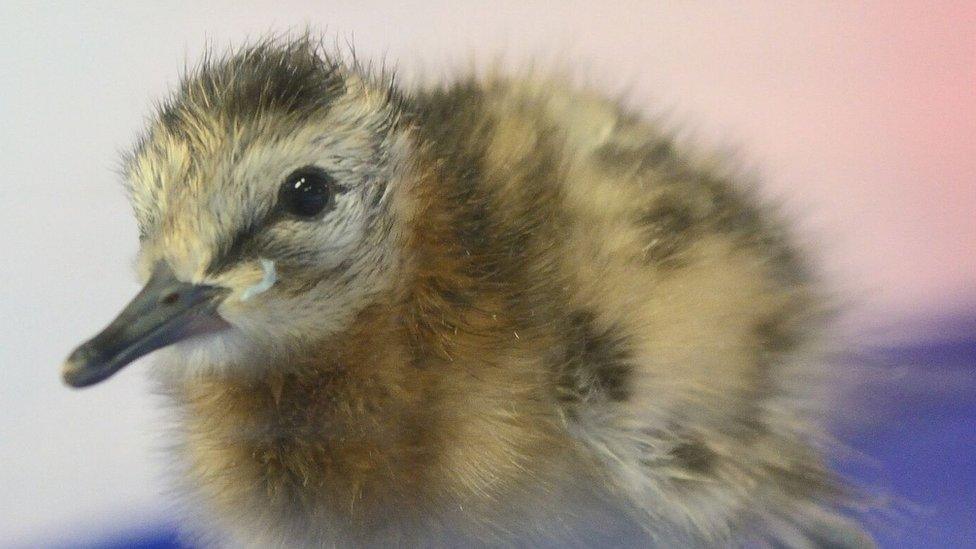'Miracle' black-tailed godwits return to Welney to nest
- Published
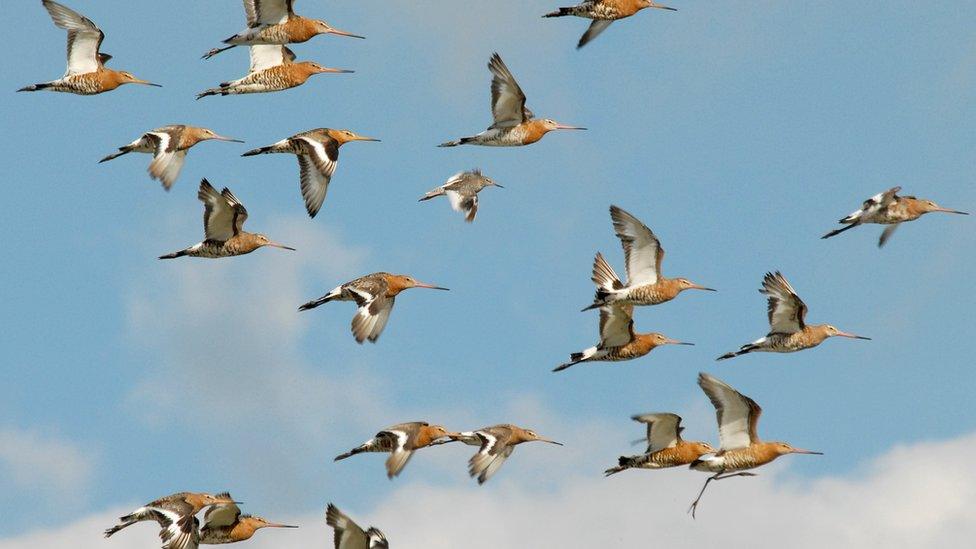
Black-tailed godwits in flight
Rare birds which were hand-reared at a Norfolk reserve have "beaten the odds" to return home for the summer.
Conservationists at the Wildfowl and Wetlands Trust (WWT), external in Welney feared the black-tailed godwits would not survive after eggs were found encased in mud last year.
Now 18 birds, ringed and released in 2017 and 2018, have successfully returned to nest in the Fens.
A WWT spokeswoman said their return was "a miracle, an incredible story".
There are fewer than 50 pairs of godwits breeding in the UK, and in recent years they have struggled to hatch and raise their chicks in safety, the charity said.
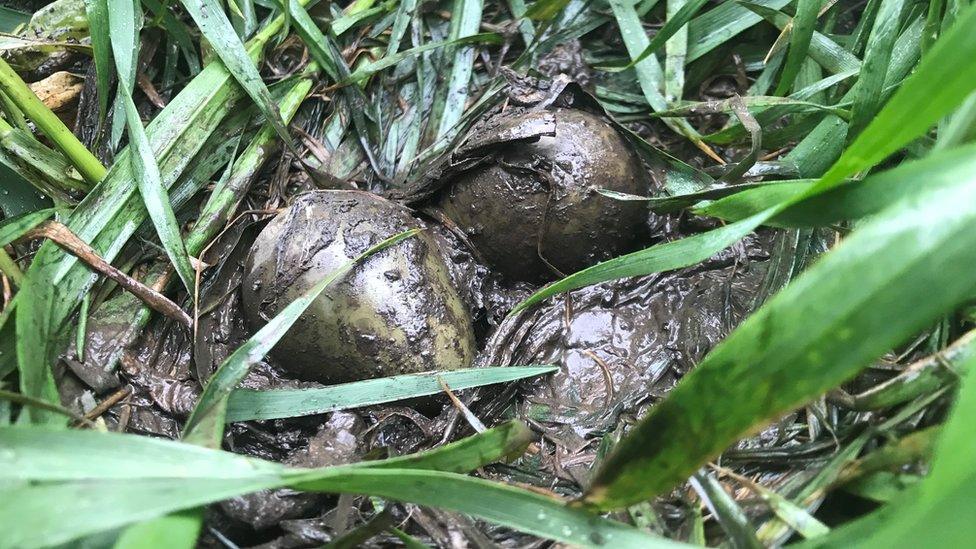
The eggs were collected using a special licence from Natural England
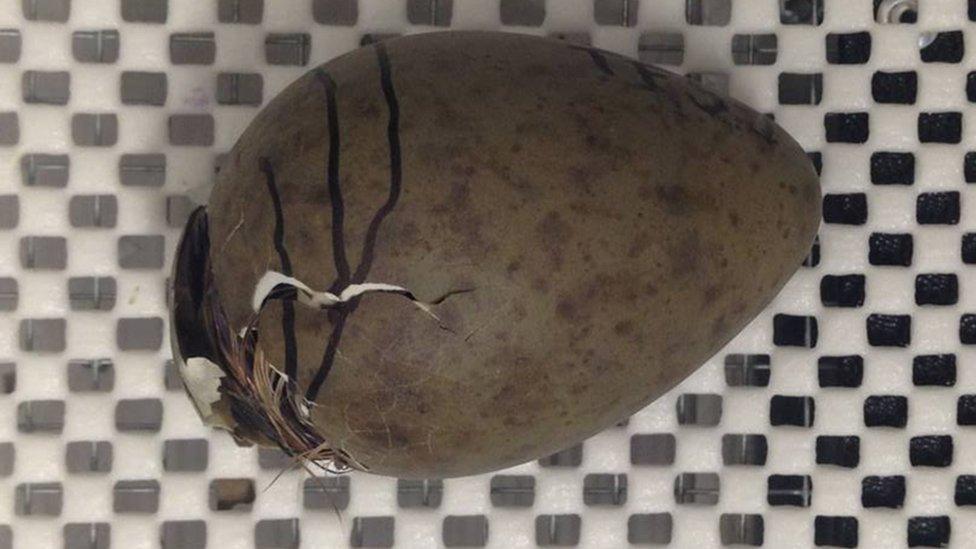
A rare black-tailed godwit emerges from its egg at Welney
Experts have been using a technique known as "head-starting" - raising young birds from eggs collected in the wild.
Five of the returning birds were hatched from eggs discovered on flooded farmland in 2018 and resembling "muddy potatoes".
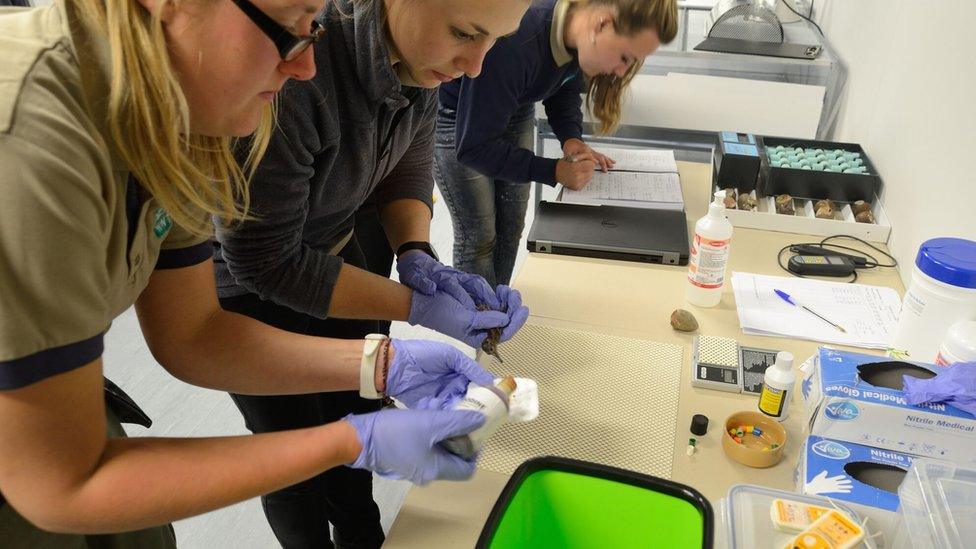
Staff at WWT Welney hand-reared the chicks until they were old enough to be released
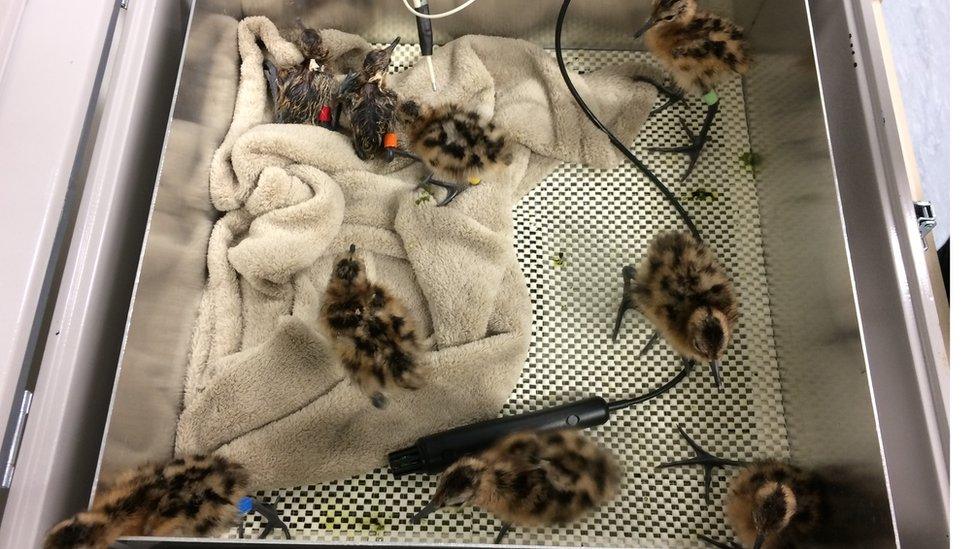
Newly-hatched godwit chicks in a dryer at Welney
Their survival is down to a collaboration between the Royal Society for the Protection of Birds (RSPB), external and the WWT, known as Project Godwit, which is now in its third year.
Two of the godwits were spotted "safe and sound" 1,000 miles (1,609km) away in Portugal in February 2018.
'Muddy potato'
WWT conservation officer Rebecca Lee said "every egg, every godwit, counts towards the survival of the species".
"There was drama last year when heavy spring rains forced some godwits to nest offsite on arable land prompting a rescue mission to free the eggs," she said.
"For those 'muddy potato' eggs, in a dreadful condition, to hatch into healthy birds and complete their migration cycle some 3,000 miles, is the cherry on top of the cake."
Hannah Ward, of the RSPB, said two further groups of godwits would be released later this year.
The Nene and Ouse Washes in the Fens are the two main breeding sites for black-tailed godwits in the UK.
- Published24 April 2018
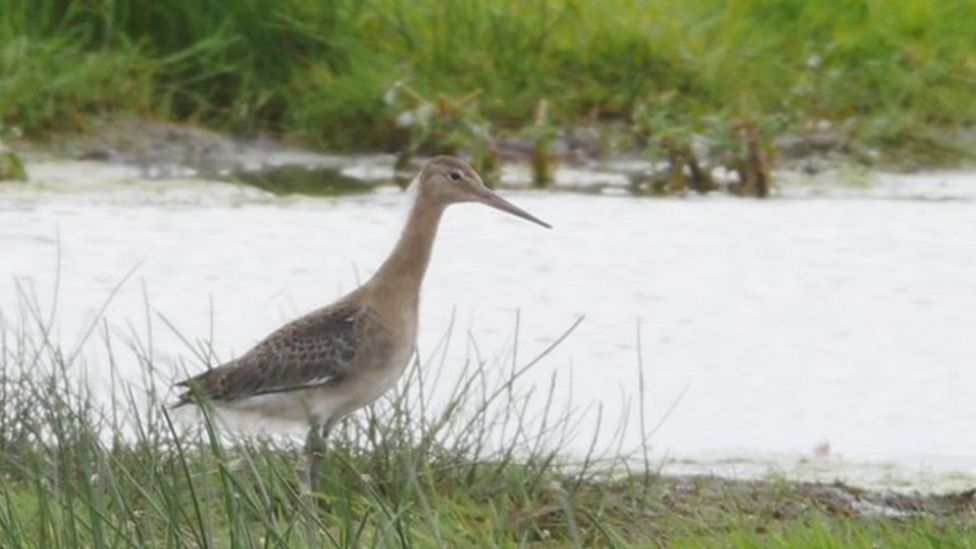
- Published8 February 2018
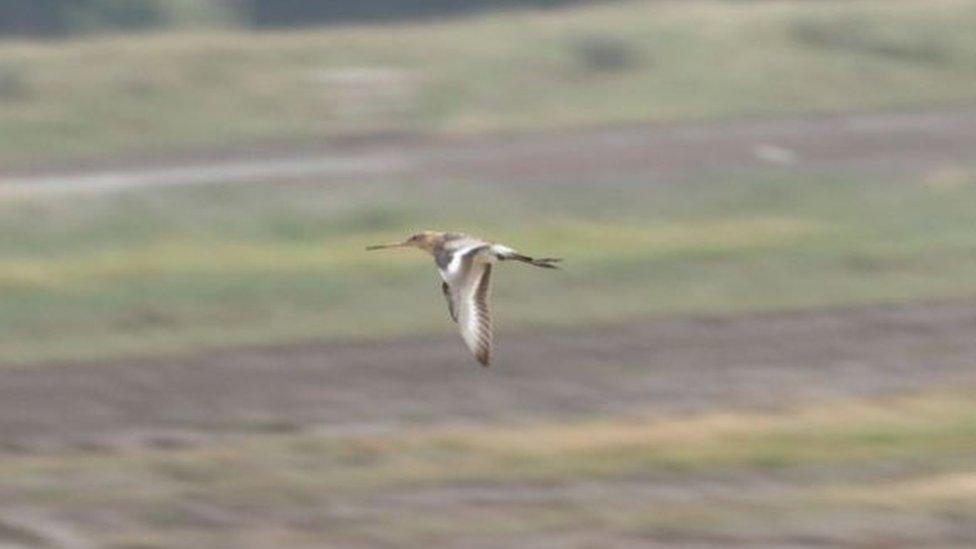
- Published12 May 2017
